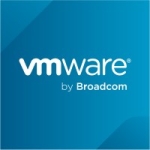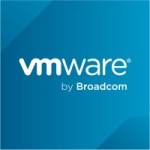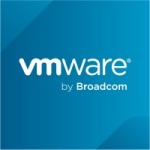
Architect at a tech services company with 51-200 employees
Google Compute Engine vs Amazon EC2
I have been using Amazon EC2 for quite some time now and I absolutely like it. They may not be the cheapest cloud-provider and they still have some things missing, like IPv6. But they are very flexible and offer a lot of features to make it easy scaling up and down when needed.
I finally took some time to enroll myself into the Google Cloud. Looking at the Compute Engine it is just like EC2 with all the same bells, whistles and terminology. The only difference I see is the amount of available images that is almost endless on Amazon and only 2 Linux distributions at Google. I am not in need of Windows images, but they seem like a big miss on Google.
Pricing structure is also the same, although Amazon has a free tier for 1 year which allows you to try before you buy. Another advantage in the Amazon pricing is the ability to pay upfront and get a discount on the hourly pricing.
This quick comparison does not make me want to fire up one Google instance, even for trying. Please let me know if I am missing on features that could differentiate Google Compute Engine from AWS. I might want to come back and try again.
Disclosure: My company does not have a business relationship with this vendor other than being a customer.
Owner at a computer software company with 51-200 employees
Amazon EC2 monthly price tables for SaaS-relevant configurations, in euros
EC2 is Amazon’s cloud service for flexible use of virtual machines. One of the big advantages of this service is that Amazon’s hourly prices also include the cost for the Windows and/or SQL Server license. Amazon has just announced lower prices for Windows EC2 instances.
It’s not always easy to calculate total monthly costs for various configurations, so in this post I will try to give an indication of montly costs for configurations that would be relevant for SaaS applications with 1,000 – 50,000 customers.
Note: In the monthly prices below I have incorporated the upfront costs for 1- and 3-year contracts in the monthly prices (spread out over the full term).
All prices are calculated for the EU region (Ireland).
Windows web server. No additional storage.
| Configuration | Resources | On-demand (hourly) p/m | 1-year term p/m | 3-year term p/m |
| M1 large instance | 2 cores, 7.6 GB memory | €200 | €131 | €99 |
| M1 extra large instance | 4 cores, 15 GB memory | €400 | €262 | €198 |
| M3 double extra large instance | 8 “second-generation” cores, 30 GB memory | €859 | €554 | €419 |
Traffic out (to the internet) is an additional €92 per TB.
Load-balanced high-activity Windows web server.
Amazon Elastic Load Balancer
3 M3 double extra large EC2 instance on 3-year terms
5 TB of internet traffic per month
Total cost per month = €1763
Database server, EC2 instance with Windows server 2008/2012 and SQL Server Web Edition 2008/2012.
Prices below include 1TB of database storage on EBS (Elastic Block Storage, Amazon’s virtual drives). For instances without guaranteed I/O I have included 500 million I/O requests per months. Upfront costs have been spread over the months of the term.
| Configuration | Resources | Guaranteed I/O | On-demand (hourly) p/m | 1-year term p/m | 3-year term p/m |
| High-memory extra-large instance | 2 cores, 17 GB memory | (no guaranteed I/O) | €463 | €292 | €249 |
| High-memory double extra-large instance | 4 cores, 34 GB memory | 500 Mbps | €798 | €467 | €384 |
| High-memory quadruple extra-large instance | 8 cores, 68 GB memory | 1000 Mbps | €1491 | €829 | €666 |
Note that you would also need additional storage for database backups, which could add €100-500 per month, depending on backup methods and backup retention.
Disclosure: My company does not have a business relationship with this vendor other than being a customer.
Buyer's Guide
Amazon AWS
October 2025
Learn what your peers think about Amazon AWS. Get advice and tips from experienced pros sharing their opinions. Updated: October 2025.
869,952 professionals have used our research since 2012.
Partner at a tech consulting company with 51-200 employees
AWS: What are the key Amazon Web Services components?
Over the last couple of years, the popularity of the “cloud computing” has grown dramatically and along with it so has the dominance of Amazon Web Services (AWS) in the market. Unfortunately, AWS doesn’t do a great job of explaining exactly what AWS is, how its pieces work together, or what typical use cases for its components may be. This post is an effort to address this by providing a whip around overview of the key AWS components and how they can be effectively used.
Great, so what is AWS? Generally speaking, Amazon Web Services is a loosely coupled collection of “cloud” infrastructure services that allows customers to “rent” computing resources. What this means is that using AWS, you as the client are able to flexibly provision various computing resources on a “pay as you go” pricing model. Expecting a huge traffic spike? AWS has you covered. Need to flexibly store between 1 GB or 100 GB of photos? AWS has you covered. Additionally, each of the components that makes up AWS is generally loosely coupled meaning that they can work independently or in concert with other AWS resources.
Disclosure: My company does not have a business relationship with this vendor other than being a customer.
Director of IT at a manufacturing company with 1,001-5,000 employees
Great platform, but needs a lot of attention.
Valuable Features:
Comprehensive Cloud platform offering, with a huge ecosystem of ISV partners, great selection of pre-built images, and much more!! Pricing cannot be beat, and new features and reduction in price are always in the works.
Room for Improvement:
It is a highly complex product, and requires training and familiarization before use.
Other Advice:
To optimally use this product, invest in training and development projects initially.
Disclosure: My company does not have a business relationship with this vendor other than being a customer.
Nice Review by author.
No doubt, AWS as a product is one of the great cloud platform. But there customer support is also great. It also offers the feature to scale any portion of your stack. Starting with Route 53 for DNS, moving to an ELB for load balancing, and going to RDS for backend.
Technical Architect at a tech company with 1,001-5,000 employees
Great way to enter into the cloud. Disk performance is generally the issue.
great way to enter into the cloud. disk performance is generally the issue.
Disclosure: My company does not have a business relationship with this vendor other than being a customer.
What I like at EC2 is the easy creation and termination of servers and that it allows experimentation without too much cost. It has a lot of services to choose with different OS options. Also, I like the simplicity and the elasticity. But EC2 is expensive and I dislike the hidden charges and the contract terms.
Developer at a tech company with 51-200 employees
A bit pricey cloud service, but with good features, and worth the money.
Valuable Features:
- Amazon Web Services offer a very low pricing option based on usage, with no up-front payment.
- Amazon Web Services can be used as a Content delivery network, as Amazon has multiple data hosting centers spread across the globe.
- Amazon Web Services is a highly secure durable technology platform, for hosting all your applications over the cloud. The AWS storage facility is very scalable and grows and shrinks as per your needs. You only pay for the exact usage and not more.
- AWS is a not dependent on any programming language or any kind of operating system platform. You are free to choose the development platform or programming model that is suitable for your application and business. You can also decide what services you want to use and how to use them. This takes the burden of focusing on infrastructure off your shoulders.
- There’s less IT infrastructure staff to manage.
Room for Improvement:
- Though not very often, Amazon services are known to go down once in a while. If you are running highly intensive businesses off Amazon, you might end up losing a big chunk of your revenue due to AWS break downs. You might have to think of alternative backup options as well.
- The other thing to keep in mind is the cost factor. Though the prices are not sky high, if you are a startup then you have to answer the big question: Is cloud comparatively a cheaper option or is it more expensive?
- Initial learning curve, sometimes takes a bit of time and deters quite a lot of people from doing their business with AWS, so make sure you spend sometime to ramp up with AWS.
Other Advice:
A good cloud service that takes care of all the back end infrastructure management and administration work off your hands. The pay-as-you-go option is very suitable for most of the organizations. Prices are a bit higher when compared to hosting your service over your own hardware. However, you get the benefits of having your application over a cloud. The auto-scale feature is something worth the money, as you don't have to worry about deploying more servers when there is a high demand during peak times.
Disclosure: My company does not have a business relationship with this vendor other than being a customer.
Senior Manager of Data Center at a integrator with 51-200 employees
Amazon AWS is till dat,e the best IaaS providers on compute, storage, and availability platform
Valuable Features:
Few things I admire about this whole AWS service by Amazon are
1) Provides persistent block storage volumes
2) Excellent load balancing features for servers
3) Excellent support on all types of relational databases, for example Oracle etc.
4) Awesome repository of operating systems from Ubuntu, Slackware, Microsoft Servers etc.
5) The virtual private cloud feature is an amazing add on for the service
Room for Improvement:
Few cons of the AWS platform are-
1) Lack of .NET support
2) A bit costlier than Microsoft Azure based on computer per hour and outbound bandwidth.
3) Unavailability of middleware caching, integration and identity management.
Other Advice:
One of the first and extremely professional services launched for the cloud platform is the advent of Amazon AWS. The bundle of services provided by them such as CloudFront, CloudWatch, EC2, Simple Storage service etc undoubtedly cover all the aspects needed by the developers and system administrators to match infrastructure and scalability issues for the growing demands.
Disclosure: My company does not have a business relationship with this vendor other than being a customer.
CSO at a consultancy with 51-200 employees
Easy, flexible, high-quality
Valuable Features:
Quick to set up, dynamic pricing, very good support.
Room for Improvement:
Pricy for dedicated servers. The base package for fast bandwidth was more than I anticipated paying.
Other Advice:
They have a package where you pay an upfront cost and get locked in for a year, but the monthly cost (or per-hour cost) is much lower. Try this out if you know you'll be with them for at least a year.
Disclosure: My company does not have a business relationship with this vendor other than being a customer.
Buyer's Guide
Download our free Amazon AWS Report and get advice and tips from experienced pros
sharing their opinions.
Updated: October 2025
Popular Comparisons
Microsoft Azure
Red Hat OpenShift
Akamai Connected Cloud (Linode)
Google Cloud
Oracle Cloud Infrastructure (OCI)
VMware Tanzu Platform
SAP Cloud Platform
Salesforce Platform
Alibaba Cloud
Pivotal Cloud Foundry
Google Firebase
VMware Cloud Foundation
Nutanix Cloud Clusters (NC2)
IBM Public Cloud
Heroku
Buyer's Guide
Download our free Amazon AWS Report and get advice and tips from experienced pros
sharing their opinions.
Quick Links
Learn More: Questions:
- Gartner's Magic Quadrant for IaaS maintains Amazon Web Service at the top of the Leaders quadrant. Do you agree?
- PaaS solutions: Areas for improvement?
- Rackspace, Dimension Data, and others that were in last year's Challenger quadrant became Niche Players: Agree/ Disagree
- Does anybody have experience negotiating the terms and conditions with AWS?
- Which would you prefer - Amazon AWS or IBM Public Cloud?
- Do you have an Amazon AWS certification, and do you think it is important to earn one?
- Would you recommend Amazon AWS to cloud computing beginners?
- Which Amazon AWS features and services do you use the most often and why?
- How does Amazon compare to alternative cloud solutions?
- What are some smart ways to streamline AWS data transfer costs?

















AWS is coming up with data centre in India for Indian businesses